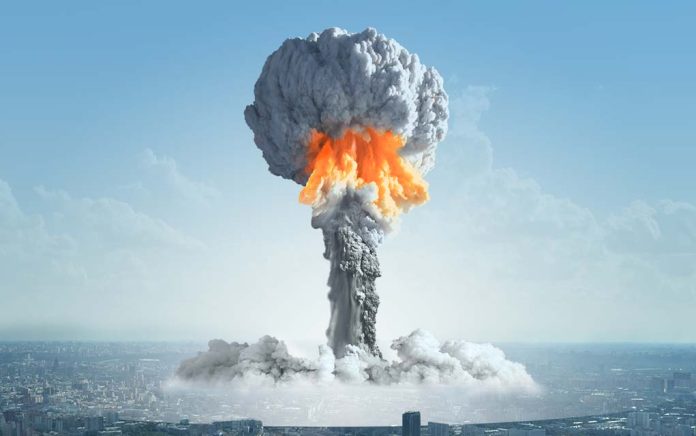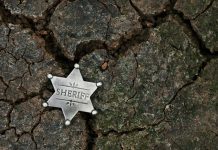(SurvivalDaily.com) – Nothing is quite so terrifying as a nuclear explosion. Since the first nuclear bomb was dropped on Hiroshima, the thought of facing such an event has inspired terror in the hearts of many. For the following scenario, we will examine the three factors that will determine if you can survive a nuclear blast.
Distance, Shelter and Time
Distance: The first factor that will determine if you can survive nuclear detonation is how far away from the explosion you are. If you are one of the unfortunates located in the hypocenter of the blast, otherwise known as ground zero, then the likelihood of surviving is non-existent. The temperature of the initial explosion reaches 100,000,000 degrees Celsius. This is roughly the same as the inside of the sun. Anything caught within this fireball is instantly incinerated.
The farther away from the blast you are, the more likely you are to survive the initial explosion. The fireball is not the only danger posed by the blast, though. The force of the detonation creates winds that begin at 980 miles per hour beneath the epicenter. Compare this to the average wind speed of a Category 5 hurricane, which is 156 miles per hour. These winds will turn rubble into flying projectiles that pose a dire threat to anything in their path.
The next thing you will have to contend with is the radiation. The fireball will suck up dirt and debris into itself, pulverizing it into fine dust, irradiating it and mixing it with material from the weapon itself. It’s then spewed out the top of the fireball and becomes radioactive fallout. You have up to 15 minutes before this fallout starts settling back to the ground, though, giving you a short time to reach the next factor we will discuss: shelter.
Shelter: To survive a nuclear explosion, first you will need to be far enough away to escape the death zone. Next, you will need to find shelter capable of shielding you from the fallout. This applies to dirty bombs as well as nuclear bombs.
If you do not have access to a fallout shelter or a bunker in your backyard, your best bet is going to be in a basement in your home or office building. These spots will probably be constructed of rebarred concrete which will provide you a greater degree of protection.
If you do not have access to an underground location the middle of any building is the next best option. Try to find a place devoid of windows, as you do not want to be hit by flying glass. The goal of your shelter is to have as much density as you can get between you and the outside world. The more distance and mass you can put between yourself and the outdoors, where radioactive particles are collecting, the better.
If you are in a car when the bomb goes off, you are going to want to get out of it and into a shelter as fast as possible. For starters, when a nuclear explosion goes off the flash can lead to temporary blindness. The light is so bright that it overloads the rods and cones in your eyes. The light from a one-megaton bomb can blind people up to 13 miles away from the site of the explosion. Roads will likely become clogged with automotive accidents and injuries in this event. Secondly, vehicles provide very little protection from radioactive particles.
Time: One of your greatest assets in this situation is time. The fallout radiation from a nuclear event loses its intensity rapidly. Within the span of two weeks, the radiation can deteriorate down to about 1% of its original potency. Hotspots can remain radioactive for one to five years though. The best bet is to abide by the “Go in, Stay in, Tune in” rule. Get inside your shelter, stay inside your shelter, and tune into a radio station to see when it is safe to leave and what locations to avoid.
The span and duration of radiation levels are difficult to predict, as they are determined by multiple factors such as the yield of the bomb, the height of the blast, and the terrain surrounding the event.
In conclusion, by following the rule of three for nuclear events, it is possible to survive. The more you prepare now, the higher your chances of survival.
Did you find this article informative? Reply to your email and share your thoughts, we would love to hear from you!
~Here’s to Your Survival!
Copyright 2021, SurvivalDaily.com

















